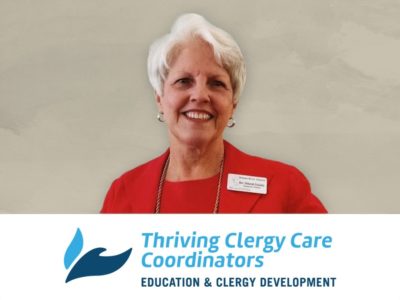In 2012, The Wesleyan Church (TWC) began taking a more formal approach to providing care, resources and even counseling to its pastors and their families through the Education and Clergy Development (ECD) branch of TWC.
But with about 4,000 pastors across 1,600 churches in North America, one-on-one care for pastors was unattainable. Rev. David Higle, who serves as director of clergy development of TWC, decided to work through the district level to provide pastors the resources they needed.
“Over the last few years, about 17 out of the 24 districts have actually identified somebody that will work with clergy at the district level and work with my office,” Higle said.
These representatives, known as Thriving Clergy Care Coordinators, work to ensure that pastors can remain healthy, fit and effective.
“My vision is that clergy coordinators will be the eyes and ears, and even the hands and feet of Jesus, to pastors and their families,” said Higle.
According to Higle, clergy care coordinators are sensitively aware of the stresses and hazards of being a pastor and who can network with agencies to provide greater local resources for pastors and their families. But perhaps more importantly, Higle believes the coordinators should be people who demonstrate a value for pastoral care and caregiving for clergy.
“Pastors have sometimes been very hurt and felt that they were not cared for, and they felt like they were not able to function and help their church to grow as they, or their district, would have liked,” Higle said. “Sometimes pastors feel valued only for what they’re able to produce and perform. That’s part of our cultural phenomena. So, we need people to demonstrate value for who they are and not just what they can do.”
Debbie Huckaby is one such clergy care coordinator. She has served in the South Coastal District since 2017. As a longtime nurse, she understands how to care for people both mentally and physically.
“Someone once asked me, ‘Why do you always try to take care of people?’ It must be my nature, I guess,” Huckaby said. “From babysitting siblings, listening to friends and providing nursing care to the sick and injured to teaching and preaching biblical wholeness, healing prayer and finding needed resources, caring for others has been a common thread throughout my life.”
As a clergy care coordinator, Huckaby frequently reaches out to pastors and their families with prayers and calls, and she continues to facilitate pastors’ access to resources like counseling or educational funding.
“Someone said that the clergy care coordinator is a pastor’s pastor. I like that because I believe only a pastor can understand what another pastor is experiencing. The clergy care coordinator role is confidential and non-supervisory, so it is truly the only place a pastor can share impartially his or her issues,” Huckaby said.
As one of the pastors who serves with Thriving Clergy Care Coordinators, Huckaby recognizes the impact her ministry brings — not only to pastors and their families, but to The Wesleyan Church as a whole.
“For the last 22 years, I have been instrumental in leading healthcare and ministry groups, teaching, preaching and doing faith and health research, creating non-profit organizations and associations, starting faith community healthcare networks, helping others to have whole person health (mind, body, spirit) and to be holy like our Lord Jesus Christ,” Huckaby said. “The Thriving Clergy care coordinator role is an opportunity to bring these many years of academic and experiential learning to bear in supporting TWC clergy and their families personally and in supporting their congregations through them.”
“Caring: that’s what this is about,” Higle said. “[Those who serve with] Thriving Clergy Care Coordinators are designed to care for pastors and the well-being of them and their families.”
More information on ECD Clergy Care.


